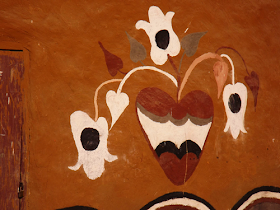Leah Libsekal of AnotherAfrica writes about the Rwanda-based design firm Design Firm George Pericles which are part of the emerging next generation of thinkers and designers working to shape the urban form and future of Kigali, the capital of Rwanda and beyond.
Indeed, with rapid urbanisation the need for innovative ideas rooted in Rwandan culture, traditions and context provides opportunity for practical and locally appropriate solutions in the quest for infrastructure development. Particularly in such a critical moment as this, with the rise in new developments and neighbourhoods in cities such as Kigali that are built with little to no consideration of Rwandan context, George Pericles has raised the critique that these solutions fail to meet the local populace’s everyday needs but will also give rise to more problems in the future. Rather than applying a tabula rasa, they are looking to blend culture and advanced technologies to create a progressive urban fabric importing rural cultural values where applicable.
Indeed, with rapid urbanisation the need for innovative ideas rooted in Rwandan culture, traditions and context provides opportunity for practical and locally appropriate solutions in the quest for infrastructure development. Particularly in such a critical moment as this, with the rise in new developments and neighbourhoods in cities such as Kigali that are built with little to no consideration of Rwandan context, George Pericles has raised the critique that these solutions fail to meet the local populace’s everyday needs but will also give rise to more problems in the future. Rather than applying a tabula rasa, they are looking to blend culture and advanced technologies to create a progressive urban fabric importing rural cultural values where applicable.
In their latest project Bumbogo Rwanda : Toponymic Urbanism design office George Pericles have taken up this challenge. They propose an innovative if not ambitious project designed to produce an adaptable future matrix that responds to both economic and cultural factors beginning with Kigali.
Bumbogo decries the superimposition of a master plan or vision from elsewhere, a cardinal tenet. As such the urban matrix uses building blocks that blend regional culture with advanced technologies to produce a vision for an up-to-date urban fabric. To this end, the “Umurenge” or smallest administrative subdivision in Rwandan governance plays an integral role to provide basic services such as water, education, health care and markets. From there George Pericles envision a notion they term ‘Fair-Urbanism.’ Essentially a joint public and private cooperative structure employed to built urban infrastructure such as roads, water and waste collection systems. In the case of Addis Ababa, such local initiatives have been in operation where residents of a given neighbourhood would cooperate to pave local ‘secondary’ roads. With ideas such as this, Guilliame Sardin, lead designer behind the project affirms his point stating that













